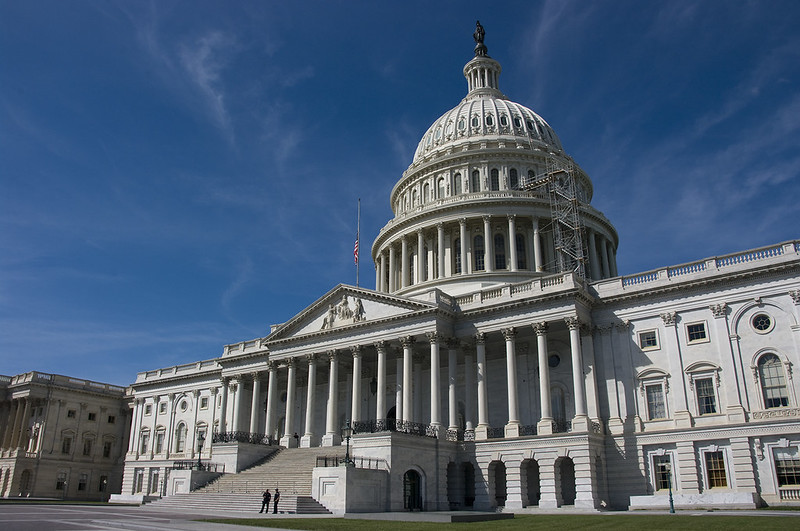
Lawmakers and the Trump Administration have started negotiations on another Coronavirus relief package.
As these discussions continue, it is imperative that Congress reject efforts to use the national emergency as an excuse to impose price controls on our healthcare system as part of surprise medical billing legislation.
Surprise medical billing occurs when an individual receives an unexpectedly high medical bill as a result of being out of network or receiving emergency care.
Unfortunately, some lawmakers want to address this problem by using the heavy hand of government to set rates for any payments made to out-of-network providers.
Under this proposal, the government would set a benchmark rate to resolve out-of-network payment disputes between insurers and providers. Benchmark rate-setting would replace private negotiations between insurers and providers with government-set prices, a blatant price control on the healthcare system.
Fortunately, there are policy alternatives to imposing price controls.
For instance, the Galen Institute’s Doug Badger and Brian Blase have proposed a solution that would not involve government-imposed price controls. Their approach would amend existing law to establish a truth-in-advertising requirement that would penalize insurers and facilities for not disclosing to patients if a doctor they are seeking treatment from is actually out of network. The proposal also requires providers to supply a good-faith estimate to patients about the cost of a procedure before it occurs.
Congress is also considering several pieces of legislation that would address surprise billing without imposing harmful price controls:
- STOP Surprise Medical Bills Act: a bipartisan measure sponsored by Senators Bill Cassidy, M.D. (R-LA), Michael Bennet (D-CO), Todd Young (R-IN), Maggie Hassan (D-NH), Lisa Murkowski (R-AK) and Tom Carper (D-DE), and co-sponsored by 30 Senators. This bill protects patients from surprise bills and establishes a process for stakeholders to negotiate prices without government-set benchmark rates. The Act also does not supersede the more than 25 states that have already put legislation in place to address surprise billing.
- S. 4185, sponsored by Senator Roger Wicker (R-Miss.): similar to the STOP Surprise Medical Bills Act, S. 4185 would establish an independent dispute resolution process for air ambulances surprise bills. Air ambulances are a critical component of rural healthcare.
Imposing price controls on the healthcare system is never a good idea but it is even more dangerous now.
Price controls utilize government power to forcefully lower costs in a way that distorts the economically efficient behavior and natural incentives created by the free market. They are a tool of the left to expand the size and scope of government and are a key part of the socialist Medicare for All proposal being pushed by far-left Members of Congress like Senator Bernie Sanders (I-Vt.) and Alexandria Ocasio-Cortez (D-NY).
Ahead of the 2020 election, Democrats are pushing to expand government healthcare. Imposing price controls on the healthcare system undermines conservative efforts to stop socialized healthcare and paves the way for progress toward Medicare for All.
Fortunately, there is significant opposition from conservatives to price setting and price controls. 75 conservative organizations recently released a letter urging Trump and Republican members of the House and Senate to oppose any price controls.
In addition, Congressman Andy Harris (R-Md.) released a letter signed by 39 conservatives in the House including new White House Chief of Staff Mark Meadows, House Freedom Caucus Chairman Andy Biggs (R-Ariz.), House Judiciary Committee Ranking Member Jim Jordan (R-Ohio), and Republican Study Committee Chairman Mike Johnson (R-La.).
Signers also acknowledged that while Congress should act on surprise billing, any legislation that includes price controls would be a nonstarter. As the letter states:
“Congress should act on surprise medical billing, but it should avoid top-down price controls that would simply be trading one problem for another.”
Instead of using the crisis to pass flawed price controls that would move our healthcare system towards the left’s goal of Medicare for All, lawmakers should take a serious, deliberative approach towards solving surprise billing.
Any forthcoming Coronavirus legislation should be narrowly tailored at helping Americans weather the pandemic, and any healthcare reforms should improve quality and access to care for all patients.

